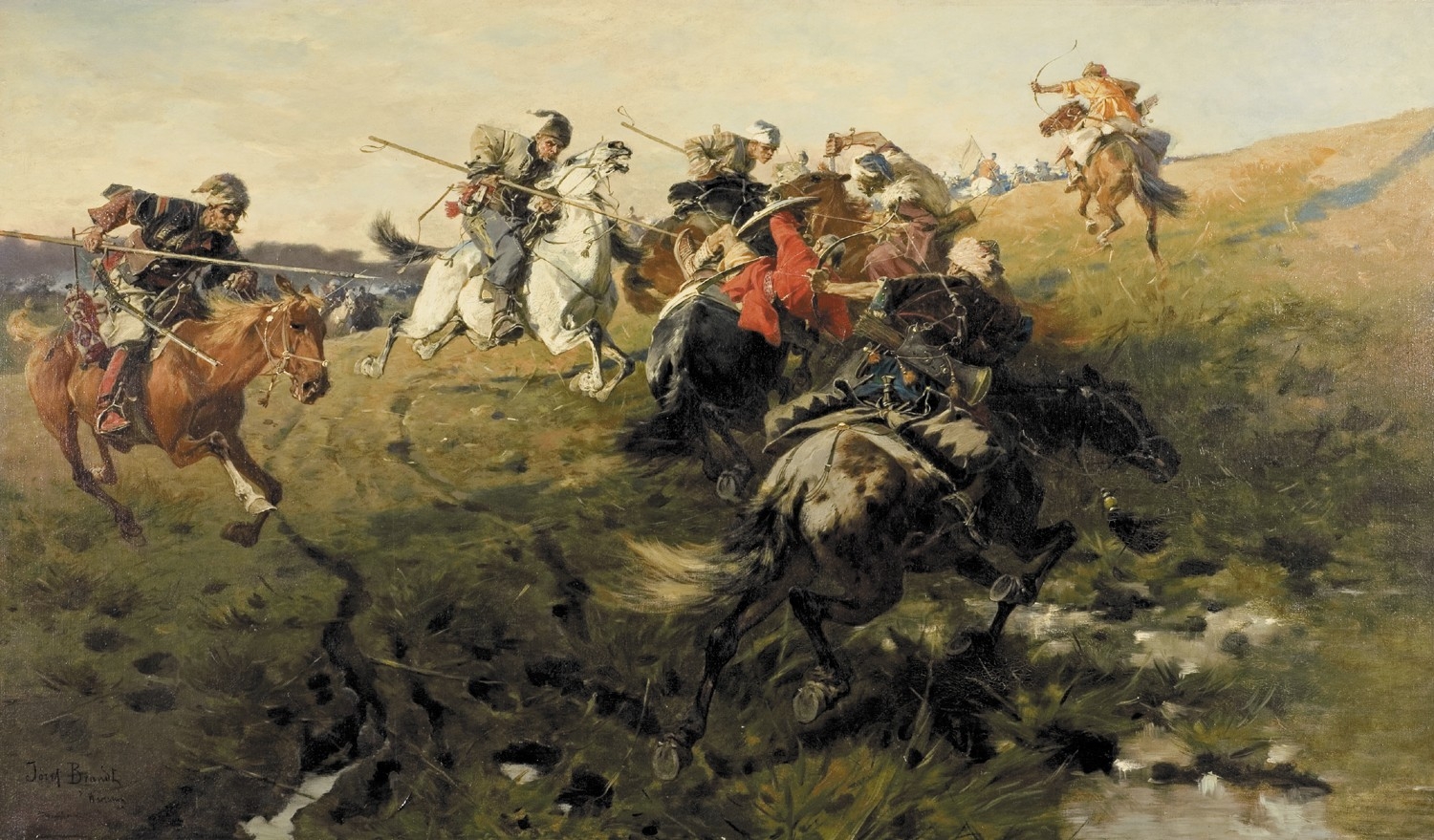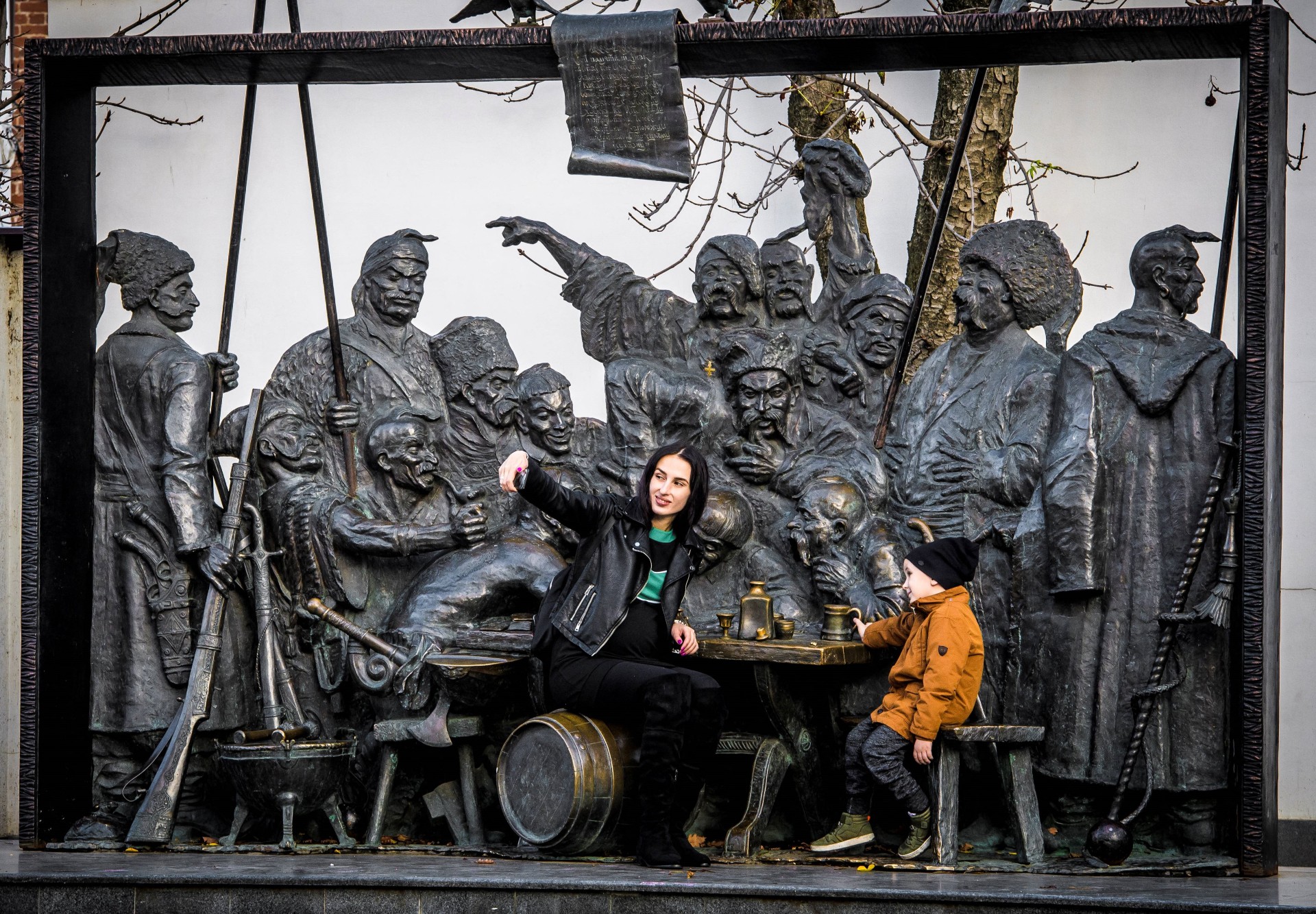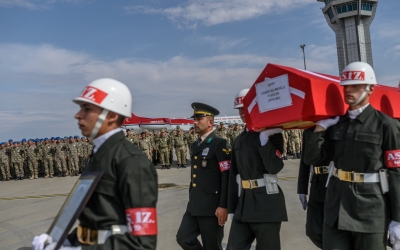Ukraine conflict: Why it really matters to Turkey

The same story has been taught to every Turkish schoolchild: throughout history, Russia has sought to control warm-water ports that belonged to the Ottoman Empire.
This policy created a grand rivalry between Moscow and Constantinople, they were taught, one that gradually swung in the former's favour as Russia seized what it wanted from the Sublime Porte through war and coercion.
The first Ottoman stronghold to fall to the Russians? The Crimean Khanate, in today's Ukraine, which Moscow took in 1783.
'Ukraine is like a dam that stops further Russian influence and pressure in the region. If Ukraine falls, it will have direct implications on Turkey'
- Turkish official
“Ukraine is like a dam that stops further Russian influence and pressure in the region,” a Turkish official tells Middle East Eye, speaking on condition of anonymity. “If Ukraine falls, it will have direct implications on Turkey."
In a hundred years following the fall of the Crimean Khanate, the Russian Empire gradually but adamantly seized territories to Ukraine's west, until arriving at the doorstep of Constantinople, now Istanbul, in 1878.
Stay informed with MEE's newsletters
Sign up to get the latest alerts, insights and analysis, starting with Turkey Unpacked
Under pressure from Moscow, the Ottomans lost the Balkans, as newly established states emerged. Thousands of Turks were made refugees in the process. In the east, the Russian Empire seized the Caucasus after a bloody campaign that left thousands of Muslims dead, and captured Turkish cities like Kars, Ardahan and Artvin.
It is stories like these that are coming to mind in Turkey as Russia builds up its forces on the Ukrainian border. In the past few months, tanks, rocket launchers, special forces and some 120,000 Russian troops have been deployed, indicating that a war, or a “surgical” military operation, is looming.
Everyone in Ankara knows that it will put Turkey in the crosshairs of this conflict.
For months, Turkish President Recep Tayyip Erdogan has been trying to host his Russian and Ukrainian counterparts for a peace summit in Turkey, to give the diplomatic process a chance. But Turkish officials are well aware that Russian President Vladimir Putin doesn’t want such a meeting: his spokesperson, Dmitry Peskov, even ridiculed the initiative.
Erdogan, who is expected to visit Ukraine on 3 February and simultaneously engage Russia, said he will nonetheless try to preach peace to both Volodymyr Zelensky and Putin.
“We have to try to talk to both sides to prevent such a war, we don’t have a choice,” the Turkish official said. “We have to, even though we aren’t very hopeful.”
Fundamental interests
Ankara believes it has fundamental interests in Ukraine. Every Turkish official who spoke to MEE was quick to mention Crimea and the brotherly Crimean Tatars, who are seen as Turkic, as something that necessitates Turkey’s full attention on Ukraine. Erdogan said last week that Turkey will never recognise Russia's 2014 annexation of Crimea.
The second issue is Ankara’s drone cooperation with Kyiv. Ukrainian firms are supplying engines to Turkey for a variety of advanced unmanned aircraft projects, with Kyiv beginning to co-produce the famed Bayraktar TB-2 armed drones last month. Baykar, which produces the TB-2, also acquired land in Ukraine in December, where it began building a factory. Ukrainian officials said last year they had 12 TB-2s in their arsenal and had plans to purchase 24 more.
Russian officials, including Foreign Minister Sergey Lavrov, have made clear that Moscow is deeply troubled by Turkey’s sale of TB-2s to Ukraine, which used one to hit a Russian-made howitzer in the disputed territory of Donbass.
Despite the criticism, MEE can reveal that it was Ukraine with whom Turkey signed a new deal last week for the sale of the heavily armed, high-altitude endurance armed drone Akinci, the first export of such a system, whose engines are also supplied by Kyiv. The Akinci drones will be delivered to Ukraine next year.
After publication of this story, Turkish sources close to drone producer Baykar denied that an Akinci deal had been signed with Ukraine.
Such a deal would be an indication that Ankara will continue to support its northern neighbour despite the reluctance of some other Nato allies, such as Germany, which has refused to even permit the UK to deliver arms to Kyiv using German airspace.
“If the Bayraktar [drones] impose significant military costs on Russia in a conflict, it will strain relations with Moscow, disrupt energy supplies and tourism,” Timothy Ash, a senior sovereign strategist at Bluebay Asset Management in London, told MEE.
No country provides more tourists to Turkey than Russia, with Russians making up 20 percent of total visitor numbers in 2021. Ukraine comes in third. Meanwhile, Turkey imported nearly 34 percent of its gas from Russia, its top supplier, in 2020.
International tensions
Turkish officials say Ankara’s growing international influence has already created tensions between Turkey and Russia. “We have been knocking down their air defence systems in Libya, Syria and Azerbaijan,” one said. “But eventually we learned how to agree to disagree and cohabit in the region.”
While Ankara created friction within Nato by purchasing Russian-made S-400 missile defence systems in 2020, in the same year it also allowed the US military to inspect another Russian-made missile system, a Pantsir, which was seized by Turkey in Libya.
Turkish officials are also worried that if Russia invades Ukraine it will increase its dominance in the Black Sea and put significant pressure on other countries, such as Romania and Bulgaria.
There are others who even think that Turkey’s drone supplies to Ukraine could come at a cost to Ankara in Syria, where Turkish troops stand in the way of a Syrian government and Russian assault on Idlib, which could push millions of refugees to the border.
“Syria remains Turkey’s soft spot. For that matter, Russia is likely to put pressure on Turkey through Syria,” says Galip Dalay, an associate fellow at the Chatham House think tank. “At a broader level, Russia and Turkey have cooperated and competed with each other through the conflict spots in the Middle East and North Africa. However, Moscow has been less open to repeating this experience with Turkey in the ex-Soviet area."
According to Dalay, Moscow views conflicts in the Middle East and North Africa as opportunities for power play and a chance to project influence. It is far less flexible and accommodating towards Turkish policy in former Soviet states, which it still views as its own exclusive area of influence.
'We are already doing our maximum by supplying drones to Ukraine. It is the deadliest support to Kyiv to this date among all Nato countries'
- Turkish official
This week, Nato announced a deterrence package against a possible Russian military assault on Ukraine, which will see warships, fighter jets and land troops deployed to the Black Sea and neighbouring countries. Notably, Turkey wasn’t among the countries that promised to contribute.
Some, like former EU ambassador to Turkey Marc Pierini, believe it's likely Ankara won't be adding its own ships and jets to the deterrence force. Doing so would significantly escalate tensions with Moscow. But Turkish officials say they have always supported Nato patrols and operations in the Black Sea, as they did this week by approving them within the alliance.
“We might partake in some operations, depending on our interests. But this is a political decision that will be made by the political leadership when the time comes,” a second Turkish official said. “But we are already doing our maximum by supplying drones to Ukraine. It is the deadliest support to Kyiv to this date among all Nato countries.”
This story has been updated to reflect Turkish denials that an Akinci drone deal had been struck with Ukraine.
This article is available in French on Middle East Eye French edition.
Middle East Eye delivers independent and unrivalled coverage and analysis of the Middle East, North Africa and beyond. To learn more about republishing this content and the associated fees, please fill out this form. More about MEE can be found here.






